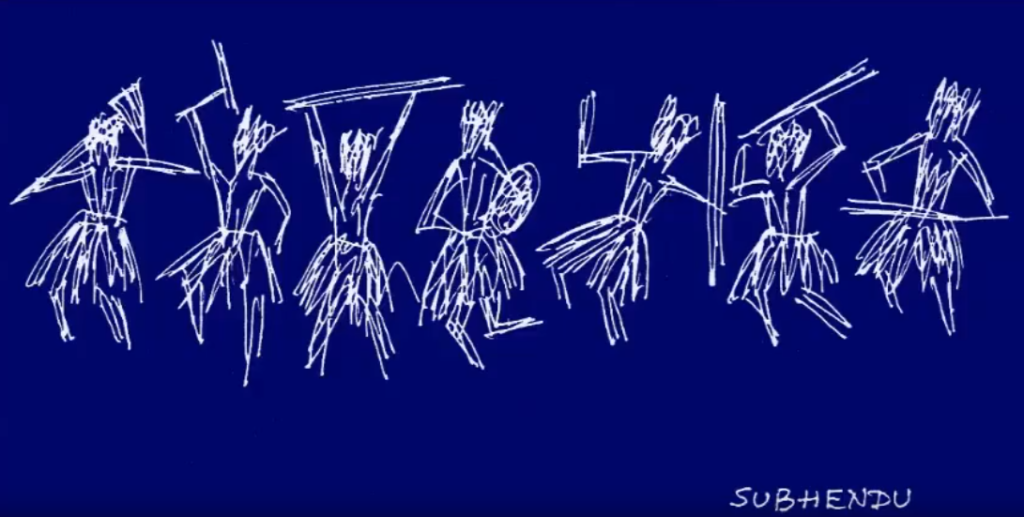Last Friday (February 14th) at Our Unlearning Hour, our regular attendees (Tania Espinales Correa, Anna Freeman, Guillermo Paredes Orozco, Richard Fletcher – for only the first half hour – so thanks to Anna and Tania for the notes on which this newsletter is based) were joined by several new faces (Eric Johnson, Moon Kim, Andrew Quigley, Julia Allwein, Indigo London) and a guest (Subhendu Ghosh). We introduced ourselves through sharing our experiences from the past week and what he had unlearned. We spoke about adjusting our work life balance, returning to our ‘child-self’, dealing with culture shock, and undergoing anti-racist organizer training.
Subhendu spoke of his recent travels in the US since arriving from Delhi, India and how he was here to learn, and therefore unlearn, Indian norms and conventions, especially in campaigning for a secular and multicultural society, in the face of a dominant Hindu monoculture. Subhendu provided historical context (from British imperialism, Gandhi, Indo-Pakistan war) and its consequences (since 2014, Hindu party has been in power, and as of 2019, efforts to change the constitution, with increasing violence against minorities), as part of a campaign to unlearn the concept of Hindutva nationalism, saying that, “Right at this moment we need a little bit of Gandhi”! Tania then asked him about how he used music as a way to resist and unlearn? Subhendu replied that you need to bring music to the people. You go to the homes of those who have lost someone or faced trauma. You sit with them and be with them. Talking is not as effective but singing and playing music helps them to know that they are not alone. People also gather and sing in the streets. These are expressions of solidarity. You have to be able to incorporate change at a political level (i.e. the constitution) and as well as at a psychological/cultural level. Two new voices to our group (Julia and Indigo) then asked about the presence of international solidarity, and the interaction between so-called ‘sub’ cultural topics, compared to others. In addition to pointing out how Noam Chomsky was protesting alongside Indian intellectuals (from fiction writers to economists), Subhendu recommended checking out NDTV for more accurate information about the political climate in India.
Links:
Subhendu Ghosh’s YouTube Channel: https://www.youtube.com/channel/UCSGxOLSSC_MJyTrAjXGzjaA
Subhendu Ghosh’s Band: http://www.dhun-music.net
